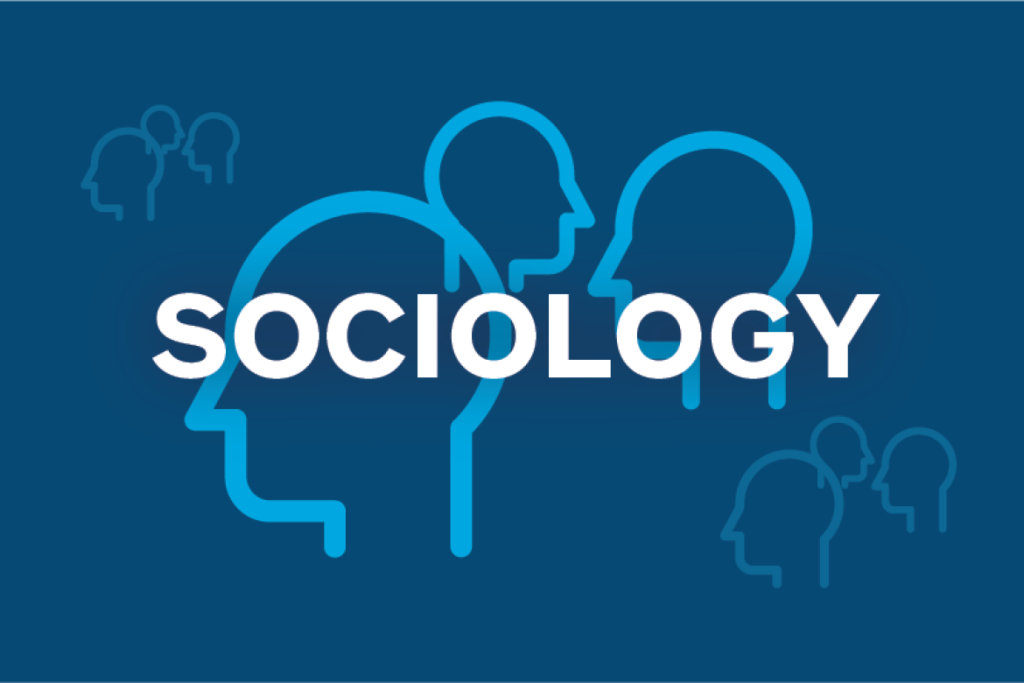Understanding Sociology: The Study of Society
October 7, 2024 2024-10-04 10:23
Understanding Sociology: The Study of Society
Sociology is the systematic study of society, social institutions, and social relationships. It aims to understand how human behavior is shaped by social structures, cultural norms, and collective interactions. This discipline covers a broad range of topics, including family dynamics, education, class, race, and gender, as well as the forces that influence social change.
Historical Background of Sociology
Sociology emerged as a distinct academic discipline in the early 19th century, shaped by significant historical events and intellectual movements. The industrial revolution, urbanization, and the rise of capitalism created a fertile ground for sociological inquiry. Founding figures such as Auguste Comte, Emile Durkheim, Karl Marx, and Max Weber laid the groundwork for sociological theory.
- Auguste Comte: Coined the term “sociology” and emphasized the need for a scientific approach to study society.
- Emile Durkheim: Focused on social cohesion and the impact of social factors on individual behavior.
- Karl Marx: Analyzed class struggles and the effects of capitalism on society.
- Max Weber: Introduced the concept of verstehen (understanding) and emphasized the importance of subjective meaning in social actions.
Key Concepts in Sociology
Sociology encompasses various concepts that help to analyze and understand the complexities of social life. Here are some essential concepts:
- Social Structure: The organized pattern of relationships and institutions that together form the basis of society. Social structures influence how individuals and groups interact and function within a community.
- Culture: The shared beliefs, values, norms, and practices of a group. Culture shapes individuals’ identities and informs their behavior.
- Socialization: The process through which individuals learn and internalize the values and norms of their culture. This lifelong process occurs through family, education, peers, and media.
- Deviance: Behaviors that violate social norms. Sociology examines the reasons behind deviant behavior and how society responds to it.
- Social Change: The alteration of social structures and cultural norms over time. Social change can result from technological advancements, social movements, and shifts in values.
Research Methods in Sociology
Sociologists employ various research methods to study social phenomena, including:
- Quantitative Research: This involves the collection and analysis of numerical data to identify patterns and relationships. Surveys and experiments are common methods in quantitative research.
- Qualitative Research: This focuses on understanding social phenomena through in-depth exploration and interpretation. Methods include interviews, focus groups, and ethnography.
- Mixed Methods: Combining quantitative and qualitative approaches allows for a more comprehensive understanding of research questions.
The Role of Sociology in Society
Sociology plays a vital role in understanding the complexities of human behavior and social interactions. Its applications can be seen in various fields, including:
- Policy Development: Sociological research informs policymakers about social issues, helping to create effective programs and policies.
- Education: Understanding the social factors affecting education can lead to improvements in teaching and learning environments.
- Healthcare: Sociologists study health disparities, healthcare access, and the social determinants of health to improve public health outcomes.
- Social Work: Sociological insights guide social workers in understanding the societal contexts of their clients’ issues.
Major Theoretical Perspectives in Sociology
Sociologists use several theoretical perspectives to analyze society. Each perspective offers unique insights:
- Functionalism: This perspective views society as a complex system with interrelated parts that work together to promote stability and social order. Functionalists study the functions of social institutions and their contributions to societal cohesion.
- Conflict Theory: This perspective emphasizes the role of power and inequality in shaping social relations. Conflict theorists analyze the struggles between different social classes and groups, focusing on how wealth and resources are distributed.
- Symbolic Interactionism: This perspective explores the ways individuals create meaning through social interactions. Symbolic interactionists study symbols, language, and the interpretations individuals assign to their experiences.
- Feminist Theory: This perspective examines gender inequalities and the social construction of gender roles. Feminist sociologists analyze the ways in which gender shapes experiences and opportunities in society.
- Postmodernism: This perspective challenges the grand narratives of modernism and focuses on the fragmented nature of social reality. Postmodern sociologists examine the impact of technology, media, and globalization on identity and culture.
Current Trends and Issues in Sociology
Sociology continually evolves to address contemporary issues and challenges. Some current trends include:
- Globalization: The interconnectedness of societies worldwide affects cultural exchange, migration, and economic relationships. Sociologists study how globalization impacts local cultures and social structures.
- Social Media: The rise of social media has transformed communication, relationships, and identity. Sociologists analyze how social media shapes public opinion, social movements, and personal interactions.
- Inequality: Issues of race, class, and gender inequality remain central to sociological research. Sociologists study the persistence of inequality and the mechanisms that sustain it.
- Environmental Sociology: This subfield examines the relationship between society and the environment, focusing on how social factors contribute to environmental problems and sustainability efforts.
The Importance of Sociology in Understanding Society
Sociology provides valuable insights into the complexities of human behavior and social structures. By studying society, sociologists help us understand the factors that shape our lives, from individual experiences to broader societal issues. This understanding is essential for promoting social justice, improving public policy, and fostering community engagement.
- Promoting Social Change: Sociology encourages critical thinking about social issues, empowering individuals to advocate for change in their communities.
- Enhancing Empathy: By understanding diverse perspectives and experiences, sociology fosters empathy and respect for others.
- Informing Public Policy: Sociological research informs policymakers about the needs and challenges faced by various populations, leading to more effective interventions.
Conclusion
In conclusion, sociology is a dynamic and essential discipline that provides a deeper understanding of human behavior and social structures. By examining the complexities of society, sociologists contribute to addressing pressing social issues and promoting a more just and equitable world.
Important Information
- Historical Background: Emerged in the 19th century influenced by industrialization and social changes.
- Key Concepts: Social structure, culture, socialization, deviance, social change.
- Research Methods: Quantitative, qualitative, and mixed methods.
- Theoretical Perspectives: Functionalism, conflict theory, symbolic interactionism, feminist theory, postmodernism.
- Current Trends: Globalization, social media, inequality, environmental sociology.
Related Posts
Understanding Sociology: The Study of Society
October 7, 2024 2024-10-04 10:23Popular Tags





























